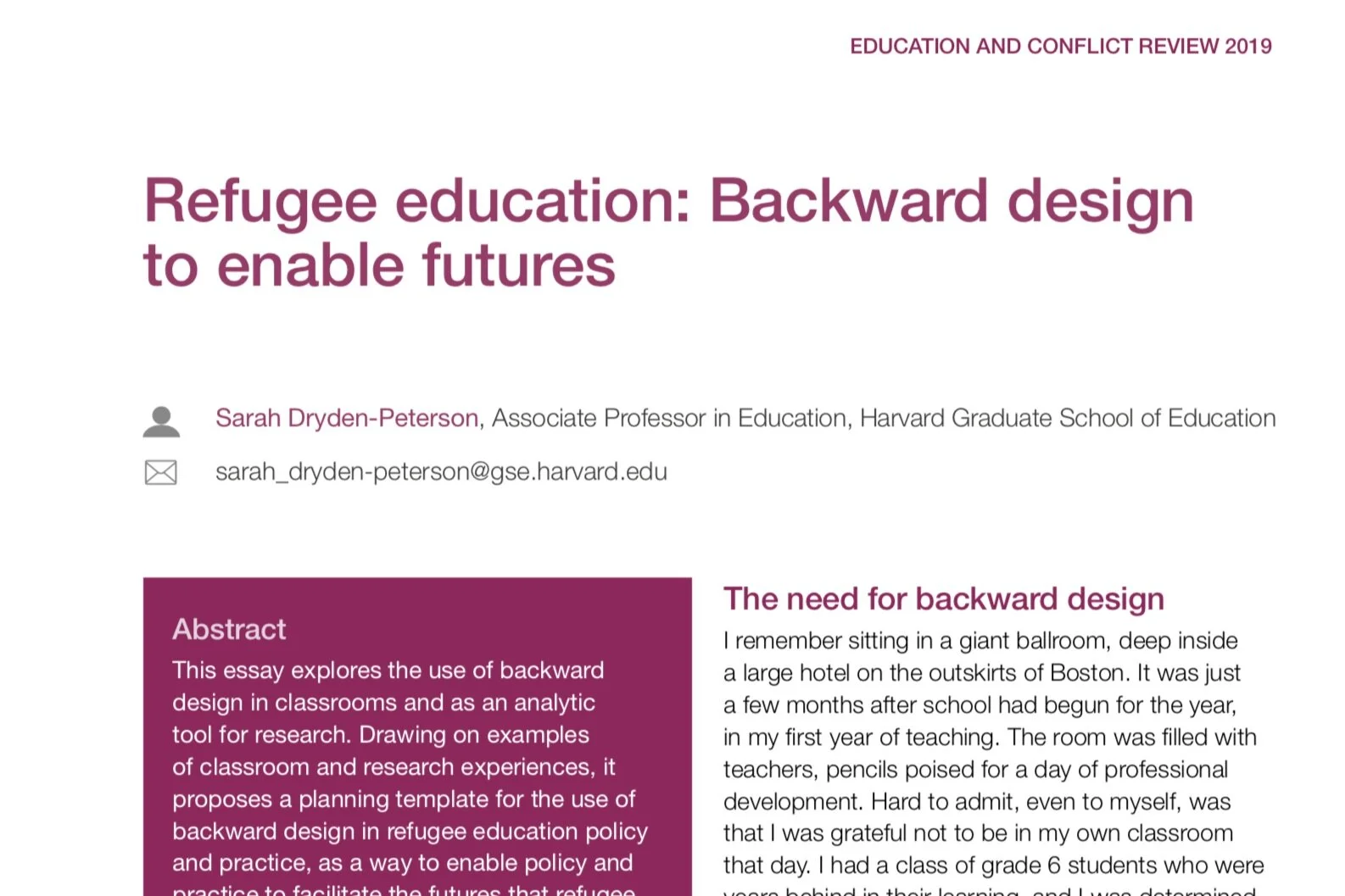Conflict Transformation
How can education alter trajectories of conflict for nation-states and individuals?
We identify policies, pedagogies, and curricula that can mitigate conflict and reduce resource-based and identity-based inequalities. Our work at REACH shows how young people can develop inclusive and multiple identities through education, which are important for their futures and those of their nation-states. Particularly critical is education that allows young people to understand and link their pasts, presents, and futures and the inequalities that shape their experiences and opportunities.
research article
“What I Believe Can Rescue That Nation”: Diaspora Working to Transform Education in Fragility and Conflict by Sarah Dryden-Peterson and Celia Reddick (2019) in Comparative Education Review.
This research article explores diaspora-led education development work in conflict-affected settings. The article demonstrates that this work is distinct from most international education development, which often reinforces inequalities, and from diaspora-led development in other sectors (e.g., business), which is often privately oriented. The authors find that in the education sector, diaspora engage in work that is publicly oriented and aimed toward systematic transformation of the content and opportunity structures of education. Diaspora-led education development work also seeks to transform conflict dynamics by addressing historical inequalities and persistent drivers of conflict.
POLICY Engagement
How Teachers Can Prepare Refugee Children For Unknowable Futures by Sarah Dryden-Peterson (2017) in NewsDeeply.
This blog addresses how education can help refugee young people to make knowable their futures in the face of great uncertainty. To do so, education needs to counter the exclusion and isolation that many refugees feel in the places they live. This endeavor requires very skilled teachers. As a global community, we must invest in teachers more than ever before, and to do so requires a shift in thinking. Teachers of refugees are not a private, national good but a public, global one. Teachers who have the skills to address each student’s needs, to build welcoming communities, and to help children chart their pathways to the future, even amid uncertainty, are not only good for refugee children but for all children. The future of inclusive, safe and productive communities may depend on them.
Curriculum
Bigger, Stronger, Braver by Winki Chan & Natasha Raisch (2019). A children’s book for students ages 5-9.
This children’s book is based on the life of a boy named Darío. Darío was born, raised, and continues to live in the region of Putumayo, Colombia, which has been vulnerable to the violence of clandestine armed actors and state-sanctioned counterattacks throughout Colombia’s decades-long civil war. The book probes the question of what it means to learn, what it means to seek peace, and what it means to use education as a tool in the pursuit of peace









